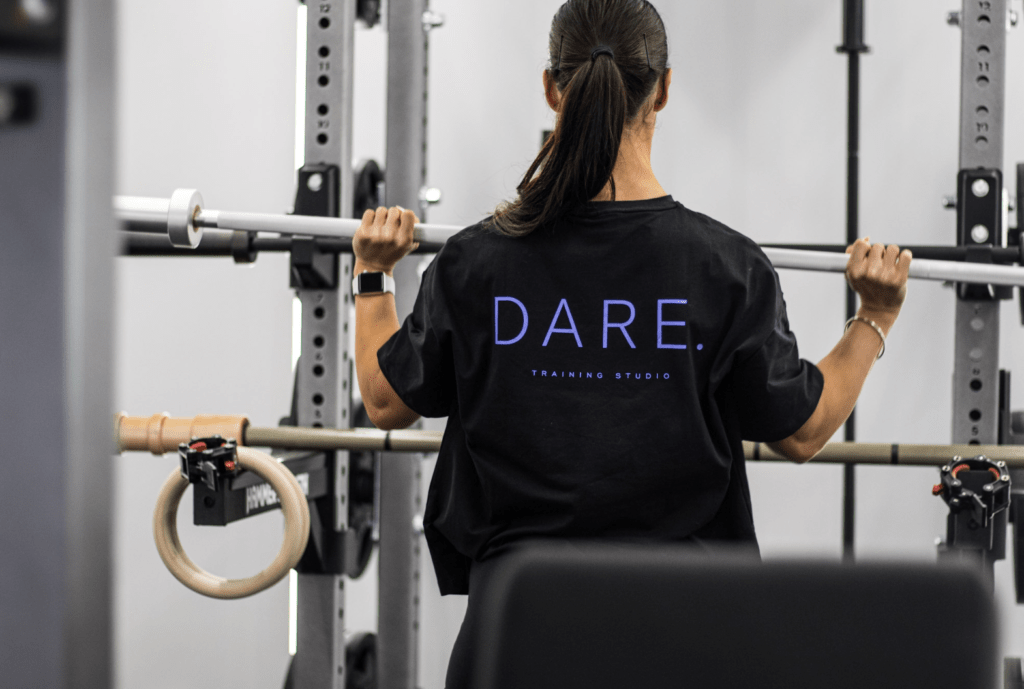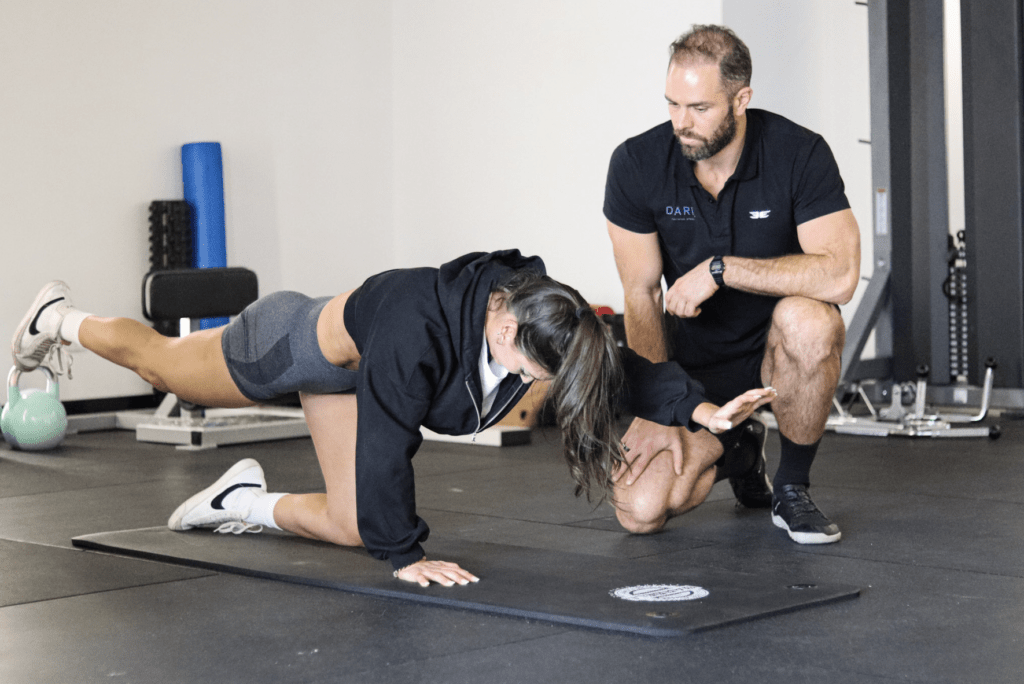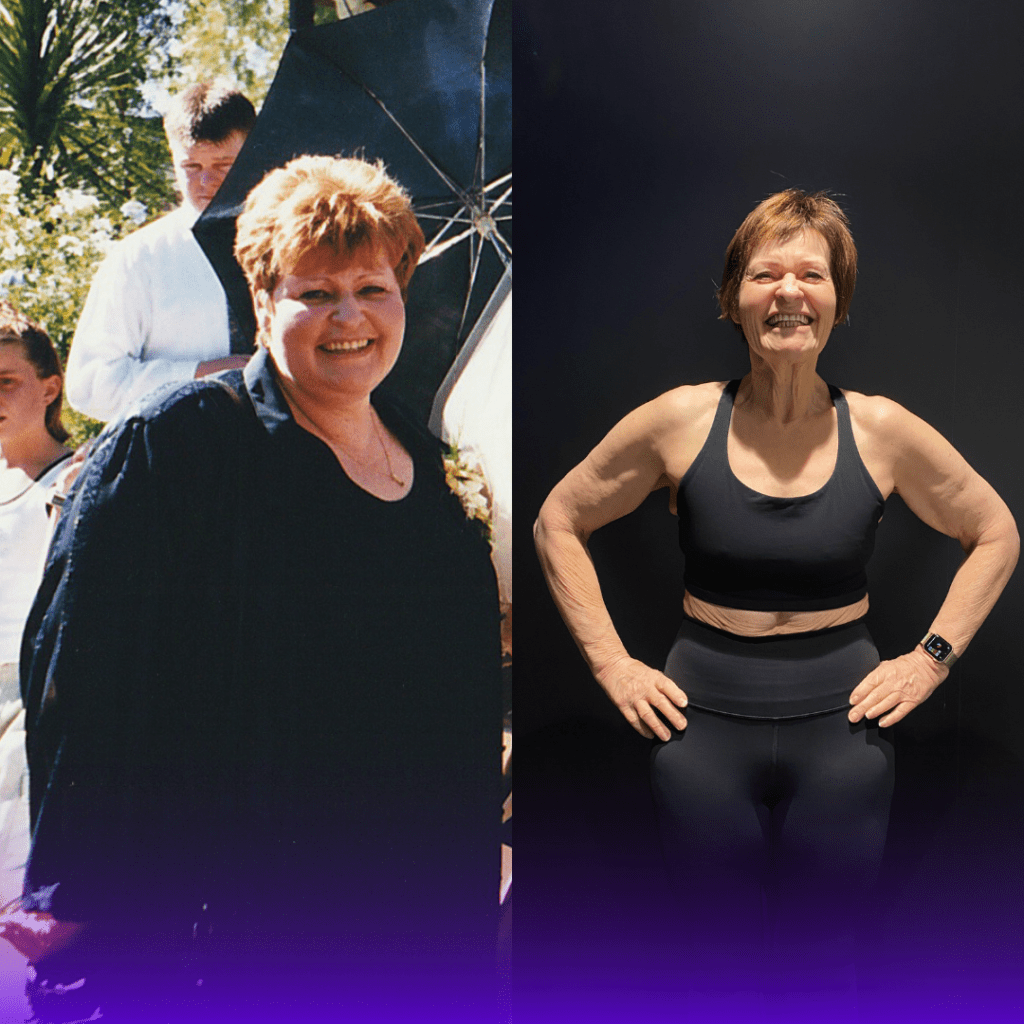What Is Body Recomposition?
By David OttobreDare MD
You may have heard the term ‘body recomposition’ and wondered what it means.
Body recomposition is usually the goal of anyone going on a diet, starting to lift weights, increasing their exercise or trying to ‘lose weight’. That said, most people are unaware of what the term means and how it’s such an important part of shaping the body.
We’re taking a look at what body recomposition is and why you should take note.
What does body composition mean?
Body composition refers to the percentage of fat, muscle and bone mass on your body at any given time. Those who carry more fat and minimal muscle will look fuller, while those who have a high muscle mass and low body fat will look lean and athletic. Usually, the latter is the goal.
You can change your body composition with a combination of diet and exercise, in order to adjust the percentages of muscle and fat on your body.
Below is an example of a change in body composition, from one of our clients.

What is body recomposition?
Body recomposition refers to adjusting the levels of fat and muscle on the body to create a change in appearance.
Often, we hear clients say that they want to ‘tone up’ or ‘lose weight’. In reality, what they often mean is that they want to lose fat and build muscle so that the shape of their figure looks different. This, in essence, is what body recomposition is.
For many people, decreasing body fat and increasing lean muscle mass will result in a change in body composition without a significant change in overall body weight. However, for those who are overweight to begin with, they may see a significant change in weight as they adjust their body composition.
Why do people need to undergo body recomposition?
People usually try to change the percentages of muscle and fat in their body as a response to gaining weight and fat over a long period of time.
Negative body recomposition often occurs by accident for most people. For example when someone eats too many calories, gains fat and doesn’t maintain their muscle mass. Over time, this will result in a negative body recomposition without the person even knowing.
The average person will need to keep track of their body composition over their lifetime if they don’t want to gain fat and lose muscle. This is because as we age we naturally lose muscle mass. In fact, muscle mass decreases approximately 3–8% per decade after the age of 30 and this rate of decline is even higher after the age of 60.
This, coupled with living in an obesogenic environment where food is readily available and non-exercise activity thermogenesis (NEAT) is low, most humans naturally gain fat and lose muscle unless they take action against it.

3 basics of body recomposition
If you want to improve your body composition, there are some basics you need to know about.
- Calorie intake
First things first, calorie intake will be one of the most important factors when changing your body composition. You generally need to create a caloric deficit (consume fewer calories than you expend) to lose body fat. However, it’s important to maintain an adequate protein intake to support muscle retention or growth.
- Strength training
Incorporating resistance or strength training exercises is essential for building and preserving muscle mass during body recomposition. Working with a personal trainer on a tailored strength program is one of the best ways to achieve your muscle building goals and stay accountable.
- Protein intake
Protein is essential for muscle maintenance and growth. Adequate protein intake helps prevent muscle loss during periods of calorie restriction. For a quick idea of how much protein to aim for each day, 1.8-2 grams of protein per kilogram of body weight per day.
See also: 3 Pillars of Muscle Building

FAQs about body recomposition
What is the difference between body recomposition, bulking, and cutting?
Body recomposition aims to simultaneously reduce body fat and build or maintain muscle. Bulking involves focusing on muscle gain with a calorie surplus, while cutting involves losing body fat with a calorie deficit.
How long does it take to see results with body recomposition?
Results can vary widely depending on factors like genetics, diet, training, and consistency. It may take several weeks to months to notice significant changes in body composition, with most people seeing changes after one month.
Do I need to count calories for body recomposition?
Monitoring calorie intake can be helpful, but it’s not always necessary. Some individuals may benefit from tracking calories, while others may focus on intuitive eating and portion control. Working with a coach to track your calories and work to a meal plan can be beneficial for those who struggle to keep track.
Can I lose fat and gain muscle at the same time?
Yes, it’s possible, especially for beginners and individuals with higher body fat percentages. However, the rate of progress may be slower compared to focused fat loss or muscle gain phases. Often people will work in a cyclical manner to build muscle in a calorie surplus and then lose fat in a calorie deficit.
What is the role of protein in body recomposition?
Protein is essential for muscle maintenance and growth. Consuming an adequate amount of protein supports muscle retention or development during calorie restriction, and will ensure that you don’t lose the muscle that you worked so hard to build!
When you’re in a calorie deficit, your body will use any resources it has to fuel the body, and that can include muscle. The only way to combat this is to keep stimulating the muscles with strength training and eat adequate protein to support muscle maintenance.
Should I do cardio exercises for body recomposition?
Yes and no. Cardio can help create a calorie deficit, aiding in fat loss. However, cardio makes you more hungry and often the calories we consume post-cardio can take us out of a calorie deficit. Hard cardio or excessive cardio without proper nutrition can lead to muscle loss and over consumption of calories. Generally, we recommend low intensity cardio like walking, balanced with resistance training for best results.
Are supplements necessary for body recomposition?
No, supplements are not necessary for body recomposition if you have a balanced diet. However, some people may choose to use supplements like protein powder to meet their nutritional needs and ensure that they can get enough protein when they’re on the go. We always suggest getting proper nutrition from food and using supplements sparingly.

Can anyone achieve body recomposition, or is it only for certain individuals?
Yes, anyone can achieve body recomposition, but the rate of progress and ease of achieving it can vary based on factors like genetics, age, and training experience.
Should I consult a professional for guidance on body recomposition?
Yes, changing your body composition is no easy task. It requires huge willpower, dedication and knowledge. Working with a personal trainer or coach is recommended when trying to change body composition, especially if you have specific goals.
It’s a long game
Remember that body recomposition is a gradual process that requires patience, consistency, and individualised adjustments based on your unique needs and progress. If you want to start your body recomposition journey today, contact us now to get started.
